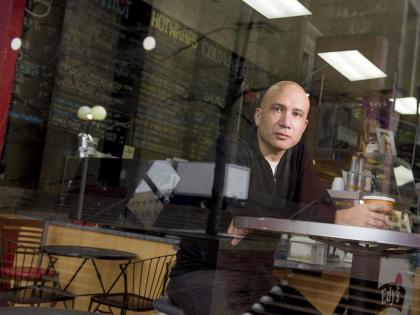Not all Harvard first-years are equally prepared to handle college’s challenges. Students from under-resourced high schools often struggle to navigate office hours, research, fellowships, class participation, city navigation, and academic planning (see “Mastering the ‘Hidden Curriculum,’” November-December 2017, page 18). These students spend their first year(s) playing catch-up, and sometimes cannot fully engage with Harvard (for example, not taking calculus in high school makes certain STEM concentrations difficult to complete). Other elite universities—Yale, Princeton, MIT, and Georgetown among them—have addressed the high school gap through immersive bridge programs. This summer, Harvard College is joining those peers by launching Rising Scholars.
The seven-week program represents Harvard’s most hands-on intervention to support several growing campus communities: poorer, rural, and first-generation students. Harvard invited about 75 students (30 of whom will attend) for the summer based on the College Board’s “landscape metric,” which grades a student’s school and neighborhood based on wealth, academic performance, and stability. The Faculty of Arts and Sciences will fund the program for three years, covering students’ eight-credit course load, on-campus housing, and travel, as well as offsetting some lost summer job income.
Since at least 2017, Harvard has declined to run such a program. Even without a dedicated summer experience, Harvard has pursued a “bouquet of efforts” toward “academic inclusion,” says associate dean of undergraduate education Sindhumathi Revuluri, including admissions outreach, STEM support, and a pre-orientation program. And for low-income students, on top of financial aid, Harvard helps purchase college necessities. But those resources, according to Ethan Hooper ’25, president of first-generation organization Primus, can be hard to find and do not address deeper concerns. “Yes, money is great,” the rural Oregonian says, but he wished Harvard did more to help him feel comfortable “in a culture that wasn’t made for me.”
Harvard Rising Scholars seeks to help students thrive by introducing them to an unfamiliar academic, extracurricular, and social environment through a structured, immersive program. Monday through Thursday, students will take an interdisciplinary course titled “Health Equity and the Social Good: Thinking with Data, Writing for Impact, and Discovering Questions That Matter.” The class—half of a typical semester’s credit load—is graded pass/fail. Most such programs offer separate introductory math and writing courses, but Rising Scholars fits both within a broader curricular theme. Each week begins with a panel of guest speakers. Program director Anne Harrington (who is Ford professor of the history of science and interim dean of undergraduate education) says that meeting with high-level scholars helps demonstrate that expertise is attainable; the experts were all “once 18 and didn’t know how to do the work that they do now, and had to learn how to code or how to write well.”
For writing and math instruction, both built around the weekly theme, students break into three groups of 10. Rising Scholars’ writing pedagogy is inspired by the Expos Studio courses (introductory academic writing classes). The summer instruction will focus on genre and the writing process, which is often oversimplified in high school. Students will also take a data science class that will serve as an introduction to computer science, a subject that many poorly-funded schools do not offer. Participants will learn Python through real-world case studies like infectious disease models.
On Fridays, students take a “Harvard Insider” crash course, venturing into the University’s various research spaces. Meeting researchers, Harrington hopes, will help students feel welcomed into what could be a daunting environment and lead to fruitful lab work. And, to get some practice, during the final weeks of the program, students will develop a research question, conduct a preliminary investigation, and present findings to their peers.
But Rising Scholars doesn’t end once summer turns to fall. For “wraparound programming,” the cohort will meet a few times each semester, and the program staff will help students identify and secure opportunities for the summer after their first year (research, study abroad, or work).
Harrington and the Rising Scholars staff stress that the program is not remedial: invitations are not based on placement tests and students are not meant to bypass introductory courses. Instead, Rising Scholars intends to help welcome a group of students whose backgrounds suggest they may have a difficult transition to college. The program hopes that getting students comfortable with Harvard early will empower them to choose any concentration, pursue any research opportunity, and join any club.








